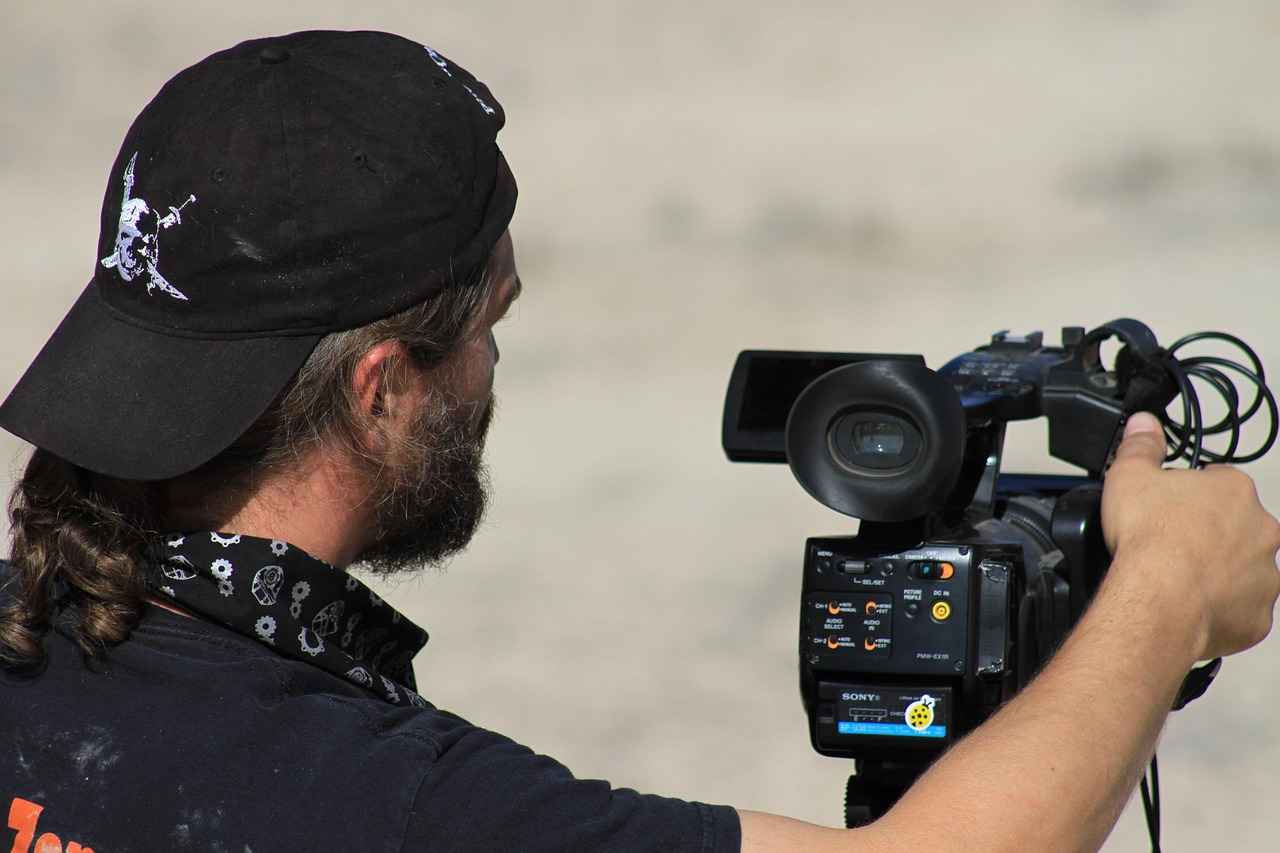This article delves into the recent controversy surrounding Rebecca Ferguson’s nude scenes in her latest film, exploring fan reactions, industry implications, and broader societal discussions on nudity in cinema.
The controversy ignited when promotional materials for Rebecca Ferguson’s latest film showcased her in vulnerable, nude scenes. This decision led to a flurry of discussions about the representation of women in cinema. Critics argued that such portrayals can perpetuate stereotypes, while supporters claimed it was a bold artistic choice. The debate also raised questions about audience expectations regarding nudity and how it affects the narrative. Fans began to express their thoughts on social media, creating a vibrant dialogue about the implications of such scenes in modern filmmaking.
Fan reactions have been diverse and passionate. Many fans applauded Ferguson for her courage, viewing her decision as a statement of empowerment and body positivity. They argue that nudity can be a powerful tool for storytelling, especially when it aligns with character development. Conversely, others have criticized the necessity of nudity in the film, suggesting that it detracts from the plot and reduces women to mere objects of visual pleasure. This split in opinion reflects broader societal views on body image and consent, with some advocating for a more respectful portrayal of female bodies in media.
Understanding industry norms regarding nudity is essential for contextualizing Ferguson’s choices. Filmmakers often navigate a complex landscape of consent, comfort, and artistic expression when depicting intimate moments. The presence of intimacy coordinators has become increasingly common, ensuring that actors feel safe and respected during such scenes. These professionals facilitate communication between actors and directors, helping to establish boundaries and create a supportive environment on set. As the industry evolves, the standards surrounding nudity are also changing, with a growing emphasis on the well-being of actors.
Intimacy coordinators are crucial in today’s film industry, especially for scenes involving nudity. Their role is to ensure that both actors are comfortable and that the portrayal of intimacy remains respectful. By establishing clear communication and boundaries, they help to alleviate potential anxieties that actors may have about filming such scenes. This practice not only protects the actors but also contributes to a more positive filming environment. The presence of intimacy coordinators marks a significant shift in how the film industry approaches sensitive content, prioritizing consent and professionalism.
Contracts in the film industry often include specific clauses regarding nudity. These clauses outline what actors are comfortable with, setting clear boundaries to protect their rights and personal choices. Actors like Ferguson can negotiate these terms before filming begins, ensuring that their comfort levels are respected. This practice is vital in fostering a culture of consent within the industry, allowing actors to assert their boundaries while still engaging in artistic expression. Understanding these contractual elements is essential for recognizing the complexities surrounding nudity in film.
Filming nude scenes can have profound psychological effects on actors. While some may feel empowered and liberated, others might experience anxiety or discomfort. The context of the scene, the actor’s personal experiences, and the support they receive on set can all influence these feelings. It’s essential for filmmakers to be aware of these impacts and to provide a supportive environment for their actors. This understanding can lead to more thoughtful portrayals of nudity in cinema, ultimately benefiting both the artists and the audience.
Representation in film is crucial as it shapes societal perceptions of beauty, body image, and sexuality. When films accurately portray diverse bodies and experiences, they can challenge harmful stereotypes and foster a more inclusive narrative. Ferguson’s role in her latest film may challenge traditional gender roles, offering a nuanced view of femininity that resonates with many viewers. This representation can encourage discussions about authenticity in storytelling and empower audiences to embrace their own identities.
Ferguson’s portrayal in her latest film challenges conventional stereotypes about women in cinema. By taking on a role that includes nudity, she defies the expectations often placed on female characters. This bold choice not only showcases her range as an actress but also invites viewers to reconsider their perceptions of femininity. Such portrayals can lead to meaningful conversations about gender and representation, ultimately contributing to a more diverse and accurate depiction of women in film.
The implications of Ferguson’s choices extend beyond her individual experience. They impact how female actors are perceived and treated within the industry, particularly regarding their autonomy over their bodies. As conversations about consent and representation evolve, it is essential for the industry to prioritize the voices and choices of female actors. This shift can lead to a more equitable environment where women are empowered to make decisions about their roles without fear of judgment or backlash.
Cultural attitudes toward nudity vary widely, influencing how audiences perceive Ferguson’s scenes. In some cultures, nudity is celebrated as a form of artistic expression, while in others, it may be viewed as taboo. These differing perspectives can ignite debates about censorship, artistic freedom, and societal norms. Understanding these cultural differences is crucial for fostering a more inclusive dialogue about nudity in cinema, allowing for a richer exploration of the topic.
Critics have offered varied responses to Ferguson’s film, with some praising its boldness and willingness to tackle complex themes. Others question the necessity of nudity, arguing that it can overshadow the film’s narrative depth. This ongoing debate reflects the tension between artistic expression and exploitation, highlighting the need for thoughtful discussions about how nudity is portrayed in film. Critics’ perspectives can provide valuable insights into the broader implications of Ferguson’s choices and the film’s impact on audiences.
Social media platforms have played a significant role in amplifying fan voices regarding Ferguson’s film. They provide a space for diverse opinions and spark viral debates about nudity in cinema. This digital dialogue allows fans to engage with the film in real-time, sharing their thoughts and experiences. As a result, social media has become a powerful tool for shaping public perception and fostering discussions about representation, consent, and artistic expression in the film industry.
The controversy surrounding Ferguson’s nude scenes underscores the importance of consent in the film industry. It prompts vital discussions about how actors can assert their boundaries and the need for transparent communication on set. As the industry evolves, prioritizing consent and ensuring that actors feel safe and respected during filming is crucial. This emphasis on consent can lead to more thoughtful portrayals of nudity and a healthier working environment for all involved.
Many actors have faced dilemmas regarding nudity, navigating personal boundaries and public expectations while striving to maintain their artistic integrity. Each actor’s approach is unique, often shaped by their experiences and the support they receive from their peers and industry professionals. By sharing their stories and insights, actors can contribute to a broader understanding of the complexities surrounding nudity in film, ultimately fostering a more inclusive environment.
The ongoing discussions surrounding Ferguson’s film may shape future industry practices regarding nudity. As conversations about representation, consent, and artistic expression continue, filmmakers may adopt more thoughtful approaches to depicting nudity. This shift could lead to better protections for actors and a more respectful portrayal of intimate moments in cinema, ultimately benefiting both artists and audiences alike.
Fans can play a crucial role in supporting actors by respecting their choices and engaging in constructive conversations. By advocating for a more inclusive and respectful film industry, fans can help create an environment where actors feel empowered to make decisions about their roles. Constructive dialogue can also foster a deeper understanding of the complexities surrounding nudity in cinema, encouraging a more nuanced appreciation of the art form.
In conclusion, the controversy surrounding Rebecca Ferguson’s nude scenes is a multifaceted issue that reflects broader societal attitudes toward nudity, consent, and representation in film. As discussions continue, it’s essential to consider the perspectives of both fans and actors, fostering a more nuanced understanding of these complex topics.

What Sparked the Controversy Surrounding Rebecca Ferguson’s Film?
The recent controversy surrounding Rebecca Ferguson’s latest film has sparked intense discussions about the portrayal of women in cinema, particularly regarding the use of nudity. The issue came to light following the release of promotional materials that showcased Ferguson in **vulnerable** and **intimate** scenes. This has ignited a broader conversation about how women are depicted in film and what audiences expect from such portrayals.
At the heart of the controversy is the question of **artistic expression** versus **exploitation**. Many fans and critics have expressed their concerns about the necessity of nudity in the film, questioning whether it serves a purpose in the narrative or if it is simply a tactic to attract attention. This debate is not new; it echoes ongoing discussions within the industry about how female characters are often sexualized, potentially diminishing their complexity and depth.
The promotional materials featuring Ferguson have led some to praise her for her bravery in taking on such a role, seeing it as a form of empowerment. Others, however, argue that the nudity could reinforce harmful stereotypes and contribute to a culture that objectifies women. This dichotomy highlights the **complex relationship** between societal expectations, personal choice, and the representation of women in media.
Moreover, the conversation extends beyond Ferguson’s film alone. It reflects a larger societal issue regarding how women are often portrayed in the entertainment industry. Many female actors have faced similar scrutiny over their choices to appear nude on screen, leading to broader implications for how female characters are written and how actresses are perceived. The controversy surrounding Ferguson’s role raises important questions about the **autonomy** of female actors and their right to make choices about their bodies in a professional context.
In addition to the **artistic** implications, this situation also sheds light on the industry standards that govern the portrayal of nudity in film. Understanding these standards is crucial for contextualizing Ferguson’s decision and the reactions it has elicited. As audiences engage with this topic, it becomes clear that the conversation is not just about one actress or one film; it is about the representation of women in cinema as a whole and the expectations that come with it.
Ultimately, the controversy surrounding Rebecca Ferguson’s nude scenes serves as a catalyst for a much-needed dialogue about the portrayal of women in film. As fans and critics alike weigh in on this topic, it is essential to consider the **implications** of these portrayals and the messages they send to audiences. The discussions prompted by this controversy could lead to more thoughtful and respectful representations of women in cinema, fostering a more inclusive environment for actresses and audiences alike.

How Do Fans Feel About Ferguson’s Decision to Go Nude?
In recent months, the film industry has been abuzz with discussions surrounding Rebecca Ferguson’s decision to appear nude in her latest film. This choice has sparked a diverse range of reactions from fans and critics alike, highlighting the complexities of body image, consent, and artistic expression in cinema. As audiences engage with Ferguson’s bold move, it’s essential to explore the multifaceted perspectives that have emerged.
Fan reactions have been mixed, reflecting a wide spectrum of opinions on nudity in film. On one hand, many fans have praised Ferguson for her bravery and willingness to embrace vulnerability on screen. Supporters argue that her decision challenges conventional beauty standards and promotes a more realistic representation of women’s bodies in cinema. This sentiment aligns with a growing movement advocating for body positivity and authenticity in storytelling. Fans who celebrate Ferguson’s choices often express admiration for her talent and view her nudity as a form of artistic expression that adds depth to her character.
Conversely, there are critics who question the necessity of nudity in the film. Some fans feel that such scenes can detract from the storyline or serve as mere exploitation rather than meaningful contributions to character development. This perspective reflects broader societal concerns about how women’s bodies are often objectified in media. Critics argue that the film industry should prioritize narratives that empower women without relying on nudity as a selling point. This debate underscores a critical tension in contemporary cinema: the balance between artistic freedom and the responsibility to portray women in a respectful and dignified manner.
Furthermore, the discussions around Ferguson’s choice to go nude also tie into larger conversations about consent and personal autonomy. Many fans advocate for a culture where actors feel empowered to make informed decisions about their bodies and the roles they take on. This sentiment is particularly relevant in light of recent movements advocating for greater awareness of consent in all aspects of life, including the film industry. Supporters emphasize the importance of creating an environment where actors can express their boundaries without fear of backlash or judgment.
In addition to personal opinions, social media has played a significant role in shaping the discourse surrounding Ferguson’s decision. Platforms like Twitter and Instagram have allowed fans to voice their thoughts, share personal stories, and engage in discussions that challenge the status quo. This democratization of dialogue has enabled a broader audience to participate in conversations about nudity, body image, and the portrayal of women in film.
Ultimately, the response to Rebecca Ferguson’s nude scenes illustrates the complexity of fan reactions in today’s media landscape. As discussions continue, it’s crucial to consider both the positive and negative perspectives, fostering a deeper understanding of how nudity in film can be perceived through various cultural lenses.

What Are the Industry Standards for Nude Scenes?
The film industry has long grappled with the portrayal of nudity, especially in the context of artistic expression and the comfort of the actors involved. Understanding industry standards for nude scenes is crucial for appreciating the complexities surrounding such intimate moments on screen. This article explores the norms that govern the depiction of nudity in cinema, focusing on consent, comfort, and the artistic vision behind these choices.
In recent years, the conversation around nudity in film has evolved significantly, reflecting broader societal changes regarding body image, consent, and representation. Filmmakers today are increasingly aware of the need for clear guidelines and ethical practices when it comes to depicting nudity. One of the primary standards that have emerged is the use of intimacy coordinators. These trained professionals play a vital role in ensuring that all parties involved in a scene feel safe and respected.
Intimacy coordinators work closely with actors to establish clear communication about what will happen during the filming of nude scenes. They help outline boundaries, discuss comfort levels, and ensure that consent is obtained and respected throughout the process. This is particularly important because, historically, the lack of such measures has led to uncomfortable or even exploitative situations for actors, especially women.
- Consent: Consent is paramount in any intimate scene. Actors must have the right to withdraw their consent at any time, and this should be clearly communicated before and during filming.
- Comfort: Intimacy coordinators create an environment where actors can express their concerns and comfort levels openly, fostering a respectful atmosphere that prioritizes their well-being.
- Artistic Expression: While nudity can serve an artistic purpose, it is essential that it is justified within the context of the story. Filmmakers are encouraged to consider whether a nude scene is necessary for character development or plot advancement.
Moreover, contracts often include specific clauses regarding nudity. These clauses outline what actors are comfortable with and set clear boundaries to protect their rights and personal choices. Such measures not only empower actors but also promote a culture of respect and professionalism within the industry.
As societal attitudes continue to shift, the industry is also seeing a rise in discussions about representation and the portrayal of diverse body types. Filmmakers are increasingly recognizing the importance of reflecting a variety of experiences and identities on screen, which can lead to more inclusive and authentic storytelling.
In conclusion, understanding the industry standards for nude scenes sheds light on the ongoing evolution of practices surrounding consent, comfort, and artistic expression in film. As actors like Rebecca Ferguson navigate these waters, their choices can spark important conversations about the portrayal of nudity in cinema and the responsibilities of filmmakers to create a safe and respectful environment.
How Are Actors Protected During Filming?
In the world of film and television, the portrayal of intimate scenes, especially those involving nudity, has become a significant topic of discussion. As audiences become more aware of the complexities surrounding these portrayals, the industry has evolved to ensure that actors are protected during filming. This article explores the measures in place to safeguard actors, with a particular focus on the role of intimacy coordinators, the importance of consent, and the evolving standards in the film industry.
Intimacy coordinators are trained professionals who specialize in choreographing intimate scenes in film and television. Their primary role is to ensure that all actors involved feel safe, respected, and comfortable while filming. This is particularly crucial in nude scenes, where the vulnerability of the actors is heightened. By working closely with the director and the cast, intimacy coordinators create a structured environment that allows for open communication about boundaries and consent.
These professionals bring a wealth of knowledge regarding the psychological and emotional aspects of performing intimate scenes. They often conduct pre-shoot meetings to discuss the specifics of the scene, allowing actors to voice their concerns and preferences. This proactive approach not only fosters a sense of safety but also enhances the overall quality of the performance.
Consent is a fundamental aspect of filming intimate scenes. Actors must have the autonomy to express their comfort levels regarding nudity and physical contact. Before filming begins, contracts often include nudity clauses that outline what is acceptable for each actor. These clauses serve as a legal agreement that protects the rights of the performers and establishes clear boundaries.
Moreover, intimacy coordinators play a vital role in facilitating ongoing consent throughout the filming process. They encourage actors to communicate any discomfort during the shoot, ensuring that adjustments can be made as needed. This dynamic creates an atmosphere of trust, where actors can focus on their performances without the added stress of feeling exposed or vulnerable.
Filming nude scenes can have profound psychological effects on actors. While some may feel empowered and liberated by the experience, others might struggle with anxiety or self-doubt. The presence of intimacy coordinators can mitigate these feelings by providing support and reassurance throughout the filming process. Actors can also benefit from engaging in discussions about their experiences, fostering a sense of community and understanding among their peers.
In recent years, the film industry has begun to recognize the importance of mental health in relation to filming intimate scenes. Workshops and training sessions focused on emotional well-being are becoming more common, further emphasizing the need for a supportive environment on set.
The film industry is gradually shifting towards more inclusive and respectful practices regarding nudity and intimacy. As conversations around consent and representation gain traction, the role of intimacy coordinators is becoming more prominent. Productions are increasingly hiring these professionals not only to ensure safety but also to enhance the authenticity of the scenes being portrayed.
This evolution reflects a broader societal change in the perception of nudity and intimacy in media. As audiences demand more thoughtful and responsible storytelling, the industry must adapt to meet these expectations. The ongoing dialogue about the treatment of actors during intimate scenes is essential for fostering a culture of respect and professionalism in film.
In conclusion, the protection of actors during filming, particularly in intimate scenes, is a multifaceted issue that encompasses consent, communication, and evolving industry standards. By prioritizing the well-being of performers through the use of intimacy coordinators and clear contractual agreements, the film industry can create a safer and more respectful environment for all involved.
What Role Do Intimacy Coordinators Play?
In recent years, the film industry has become increasingly aware of the need for professionalism and sensitivity in the portrayal of intimate scenes. This awareness has led to the emergence of a vital role known as the intimacy coordinator. These trained professionals play a crucial part in ensuring that actors feel safe and respected during the filming of sensitive scenes, such as those involving nudity or sexual content. But what exactly do intimacy coordinators do, and why are they so important in today’s cinematic landscape?
Intimacy coordinators are responsible for creating a safe and respectful environment on set, particularly during intimate scenes. They work closely with directors, actors, and production teams to establish a clear understanding of the scene’s requirements while prioritizing the actors’ comfort and boundaries. Here are some of their key responsibilities:
- Pre-Production Planning: Before filming begins, intimacy coordinators collaborate with the director and scriptwriters to discuss the scene’s context, emotional tone, and specific actions. They ensure that everyone involved understands the scene’s purpose and how to approach it sensitively.
- Establishing Boundaries: An essential part of their role is to facilitate conversations between actors about their personal boundaries. This includes discussing what they are comfortable with and what they wish to avoid, ensuring that all parties are on the same page.
- Choreography of Intimate Scenes: Intimacy coordinators help choreograph the actions involved in intimate scenes, ensuring they are executed safely and effectively. This choreography allows actors to perform convincingly while maintaining their comfort.
- On-Set Support: During filming, intimacy coordinators remain present to monitor the actors’ well-being. They provide ongoing support and can pause filming if any actor feels uncomfortable, ensuring that the atmosphere remains respectful and consensual.
The presence of intimacy coordinators significantly enhances the safety and consent protocols on set. By facilitating open communication and establishing clear boundaries, they help create an environment where actors can express their concerns without fear of judgment. This is particularly important in an industry where power dynamics can often leave actors feeling vulnerable.
Moreover, intimacy coordinators are trained to recognize signs of discomfort or distress in actors. They are equipped with the skills to intervene and address any issues that may arise during filming. This proactive approach not only protects the actors but also contributes to a healthier work environment overall.
In addition to enhancing safety, intimacy coordinators also play an educational role. They often conduct workshops and training sessions for cast and crew, raising awareness about consent, communication, and the emotional aspects of filming intimate scenes. This education fosters a culture of respect and understanding within the industry.
The increasing visibility of intimacy coordinators in film and television reflects a broader societal shift towards prioritizing consent and respect in all areas of life. As audiences become more aware of the complexities surrounding representation and consent, the demand for professionalism in filmmaking continues to grow.
Actors like Rebecca Ferguson, who navigate the challenges of filming nude scenes, benefit greatly from the support of intimacy coordinators. Their role not only empowers actors but also encourages filmmakers to approach intimate content with greater care and responsibility.
In conclusion, intimacy coordinators are essential for ensuring that actors feel safe and respected during intimate scenes. Their responsibilities extend beyond choreography; they foster an environment of consent and open communication, ultimately enhancing the quality of the film and the well-being of the performers.
How Do Contracts Address Nudity Clauses?
Understanding the intricacies of contracts in the film industry, especially regarding nudity clauses, is essential for both actors and filmmakers. These clauses are designed to protect the rights and personal choices of actors while also ensuring that the creative vision of the project is respected. In this article, we will explore how contracts address nudity clauses, the importance of these agreements, and the implications they have on the industry.
Nudity clauses are specific sections within an actor’s contract that outline the conditions under which they agree to perform nude scenes. These clauses are crucial for establishing clear boundaries and expectations between the actor and the production team. They typically include details such as:
- The extent of nudity allowed (full nudity, partial nudity, etc.)
- Specific scenes where nudity will occur
- Conditions under which the actor can withdraw consent
- Provisions for the use of intimacy coordinators
The inclusion of nudity clauses in contracts serves several purposes. First and foremost, they protect the actor’s personal autonomy and ensure that their boundaries are respected. Actors often have different comfort levels when it comes to nudity, and a well-defined clause can help to alleviate anxiety and uncertainty.
Furthermore, these clauses help to create a professional environment on set. By clearly outlining expectations, actors can focus on their performances without worrying about unexpected situations or breaches of trust. This is especially important in intimate scenes, where the emotional and psychological well-being of the actors is paramount.
Contracts that include nudity clauses often emphasize the importance of consent and communication. For instance, many agreements stipulate that actors must be informed about any changes to the script that might affect their nudity. This ensures that actors maintain control over their bodies and can voice any concerns they may have.
Additionally, the involvement of intimacy coordinators is increasingly becoming a standard practice in the industry. These professionals are trained to facilitate communication between actors and directors, ensuring that everyone involved is comfortable and that the portrayal remains respectful. This collaborative approach fosters a safer working environment and promotes healthy dialogue about sensitive topics.
One of the most critical aspects of nudity clauses is the provision for an actor to withdraw consent. If an actor feels uncomfortable or unsafe during filming, they should have the right to refuse to perform a scene that involves nudity. Contracts often include specific language that allows for this withdrawal, emphasizing that the actor’s comfort and safety are top priorities.
In practice, this means that if an actor expresses discomfort, the production team must respect their wishes and find alternative ways to achieve the desired effect without compromising the actor’s boundaries.
In conclusion, nudity clauses are a vital component of film contracts that serve to protect actors’ rights and ensure a respectful working environment. By clearly defining boundaries and emphasizing consent, these clauses contribute to a more ethical and supportive film industry.
What Are the Psychological Impacts of Filming Nude Scenes?
Filming nude scenes is a complex and often sensitive aspect of the entertainment industry that can evoke a wide range of psychological impacts on actors. These effects can vary significantly based on personal experiences, cultural background, and the context of the scene itself. Understanding these psychological impacts is crucial for both actors and audiences as it highlights the emotional labor involved in such performances.
The decision to perform nude scenes can lead to a mix of empowerment and anxiety for actors. For some, shedding clothing on screen is a liberating experience that allows them to embrace their bodies and challenge societal norms regarding nudity. This empowerment can stem from a sense of control over their own image and a desire to portray authenticity in their roles. Actors like Rebecca Ferguson have spoken about how such scenes can be an opportunity to explore vulnerability and strength simultaneously.
On the flip side, many actors report feeling intense pressure and anxiety before filming nude scenes. The fear of judgment from audiences, the media, and even fellow cast members can weigh heavily on their minds. Concerns about body image, personal insecurities, and the potential for negative public perception can lead to heightened levels of stress. These feelings are often exacerbated by the unrealistic beauty standards perpetuated by the media, making it difficult for actors to feel comfortable in their own skin during such intimate moments.
Moreover, the context in which a nude scene is filmed plays a significant role in shaping the psychological experience for actors. If the scene is well-integrated into the narrative and serves a purpose in character development, actors may feel more at ease. Conversely, if the nudity feels gratuitous or exploitative, it can lead to feelings of violation or discomfort, undermining the actor’s sense of safety and trust on set.
To mitigate these psychological impacts, the film industry has increasingly recognized the importance of intimacy coordinators. These professionals are trained to help actors navigate the complexities of filming intimate scenes, ensuring that everyone involved feels safe and respected. By fostering an environment of open communication and consent, intimacy coordinators can help alleviate some of the anxiety actors face, allowing them to focus more on their performance rather than their insecurities.
In addition to the support provided by intimacy coordinators, actors often rely on their personal networks for emotional support. Friends, family, and fellow actors can offer encouragement and reassurance, helping to bolster an actor’s confidence before filming. This support system can be vital in helping actors process their feelings about nudity and maintain a healthy perspective on their work.
Ultimately, the psychological impacts of filming nude scenes are multifaceted and deeply personal. While some actors may find empowerment and artistic expression through nudity, others may struggle with anxiety and self-doubt. As conversations around body positivity and representation in film continue to evolve, it is essential for the industry to prioritize the mental well-being of actors, ensuring that they are supported throughout the creative process.
Filming nude scenes is not just a technical aspect of filmmaking; it is an emotional journey that can significantly impact an actor’s mental health. Recognizing and addressing the psychological effects of such performances is crucial for fostering a supportive environment in the film industry. As discussions around these topics continue, it is important to advocate for practices that prioritize actor well-being and promote a culture of respect and consent.

Why Is Representation in Film Important?
Representation in film is a pivotal aspect of storytelling, influencing how audiences perceive beauty, body image, and sexuality. It serves as a mirror reflecting societal values and norms, shaping the way we understand ourselves and each other. In an industry that often prioritizes certain ideals over others, the importance of diverse representation cannot be overstated. It impacts not only the characters we see on screen but also the narratives that are told and the conversations that arise from them.
When audiences watch films, they often find themselves identifying with characters who reflect their own experiences, backgrounds, and identities. Representation matters because it validates the existence of diverse stories and perspectives, allowing viewers to see themselves in various roles. This connection fosters empathy and understanding, encouraging audiences to engage with narratives that might differ from their own reality.
For instance, films that showcase women of color, LGBTQ+ characters, or individuals with disabilities can challenge stereotypes and broaden the understanding of what it means to be human. By seeing these characters navigate their lives, audiences can develop a deeper appreciation for the complexities of different identities. Furthermore, representation can empower marginalized groups, inspiring them to share their stories and advocate for their rights.
Conversely, a lack of representation can perpetuate harmful stereotypes and reinforce societal biases. When certain demographics are consistently underrepresented or misrepresented in film, it sends a message that their stories are less valuable or important. This can lead to a skewed perception of reality, where audiences may internalize negative stereotypes or hold unrealistic expectations about different groups.
For example, the portrayal of women in film has historically leaned towards objectification, often reducing them to mere plot devices. This not only affects how women are viewed in society but also how they view themselves. The consequences can be profound, impacting self-esteem, body image, and overall mental health. By contrast, films that depict women as complex, multifaceted characters contribute to a more balanced understanding of gender roles.
Filmmakers have a crucial role in promoting better representation in the industry. This can be achieved through various means:
- Diverse Casting: Actively seeking out actors from underrepresented backgrounds can enrich storytelling and provide authenticity.
- Inclusive Storytelling: Encouraging writers and directors to tell stories that reflect a variety of experiences can broaden the narrative landscape.
- Collaboration with Communities: Engaging with the communities being portrayed can ensure accuracy and respect in representation.
Moreover, industry initiatives aimed at increasing diversity behind the camera are equally important. When decision-makers reflect the diversity of the world, it is more likely that stories will be told with the nuance and respect they deserve.
Improved representation in film can lead to a more inclusive society. As audiences see themselves reflected in various roles, it can help dismantle prejudices and foster a culture of acceptance. Furthermore, it encourages future generations of filmmakers and storytellers to explore diverse narratives, ultimately enriching the cinematic landscape.
In conclusion, representation in film is not just about diversity for diversity’s sake; it is about creating a more equitable and understanding world. By embracing varied perspectives and experiences, filmmakers can contribute to a more inclusive dialogue that resonates with audiences everywhere.
How Does Ferguson’s Role Challenge Stereotypes?
Rebecca Ferguson’s recent film has sparked significant discussions, particularly regarding her role and its implications for gender representation in cinema. This conversation is crucial as it challenges traditional stereotypes and offers a fresh perspective on femininity. In a world where media often perpetuates narrow definitions of gender roles, Ferguson’s performance stands out, prompting viewers to reconsider their preconceived notions of what it means to be a woman on screen.
Ferguson’s portrayal is a powerful commentary on the complexities of femininity. Unlike typical depictions that often confine female characters to simplistic archetypes, she embodies a multi-dimensional character who navigates her identity with depth and authenticity. This representation is vital as it resonates with many viewers who see parts of themselves reflected in her struggles and triumphs.
One of the most striking aspects of Ferguson’s character is her vulnerability. In many films, female characters are portrayed as either strong and unyielding or weak and dependent. Ferguson’s role transcends these binaries, showcasing a woman who is both powerful and fragile. This nuanced portrayal invites audiences to engage in conversations about authenticity in storytelling and the importance of presenting women as complex individuals rather than mere plot devices or symbols.
Moreover, Ferguson’s performance encourages viewers to challenge the societal norms that dictate how women should behave or appear. By embracing her character’s flaws and strengths, she sends a message that femininity is not monolithic. This is especially significant in an industry that has historically marginalized diverse representations of women. Her role serves as a reminder that women’s experiences are varied and should be celebrated in all their forms.
Ferguson’s decision to take on such a role also raises important questions about the expectations placed on female actors. In an era where the #MeToo movement has highlighted issues of consent and representation, her performance can be seen as a form of empowerment. It challenges the notion that women must conform to certain standards to be accepted in the film industry. Instead, Ferguson’s character embodies a sense of agency, making choices that reflect her desires and autonomy.
Furthermore, the discussions surrounding her portrayal extend beyond the screen. They encourage audiences to reflect on their own biases and the stereotypes they may unconsciously perpetuate. By engaging with Ferguson’s character, viewers are prompted to reconsider how they perceive women in real life, fostering a broader dialogue about gender equality and representation in media.
In conclusion, Rebecca Ferguson’s role in her latest film is not just a performance; it is a catalyst for change in how femininity is portrayed in cinema. By challenging traditional stereotypes and providing a nuanced view of women’s experiences, she paves the way for more authentic and diverse representations in the industry. As audiences continue to engage with her work, it is essential to recognize the impact such portrayals can have on societal perceptions and the ongoing fight for gender equality.
What Are the Broader Implications for Female Actors?
The conversation surrounding Rebecca Ferguson’s choices in her latest film extends far beyond her individual experience. It opens up a broader dialogue about the treatment and perception of female actors in the film industry, particularly regarding their autonomy over their bodies. This issue has become increasingly relevant in a climate that demands greater respect for women’s choices and voices, both on and off the screen.
Female actors often face a unique set of challenges when it comes to their autonomy in the industry. Unlike their male counterparts, women are frequently subjected to societal pressures and expectations regarding their appearances and roles. This can lead to a feeling of being objectified, where their worth is measured by their physicality rather than their talent. For instance, Ferguson’s decision to appear nude in her film sparked mixed reactions, revealing how deeply ingrained societal views on women’s bodies are.
- Body Image Issues: Many female actors grapple with body image issues, which can be exacerbated by the industry’s unrealistic standards of beauty.
- Consent and Comfort: The importance of consent in intimate scenes cannot be overstated. Actors must feel comfortable and safe in their choices, which is not always guaranteed.
- Career Implications: The choices women make regarding their bodies can have lasting effects on their careers, influencing the types of roles offered to them in the future.
When female characters are objectified, it sends a message to audiences about women’s roles in society. This objectification can manifest in various ways, from the way characters are dressed to the scenes they are placed in. Ferguson’s film, while celebrated by some for its boldness, also raises questions about whether nudity is necessary for storytelling or if it serves merely to titillate. This is a crucial distinction that impacts how female actors are perceived.
| Type of Representation | Impact on Perception |
|---|---|
| Empowered Female Characters | Encourages positive body image and autonomy. |
| Objectified Female Characters | Reinforces harmful stereotypes and societal norms. |
In response to these challenges, many female actors are becoming advocates for change within the industry. They are vocal about their experiences and work to establish better practices regarding consent, representation, and body autonomy. Initiatives like the inclusion of intimacy coordinators on set are becoming more common, ensuring that actors have a say in how their bodies are portrayed. This shift not only empowers women but also enriches the storytelling process by allowing for more authentic representations of female experiences.
Ultimately, the implications of Ferguson’s choices resonate throughout the industry, prompting a necessary reevaluation of how women are treated and represented in film. As discussions continue, it becomes clear that the fight for autonomy and respect is far from over, but the voices of female actors are becoming increasingly powerful in shaping a more equitable landscape.

How Do Cultural Differences Affect Perceptions of Nudity?
The topic of nudity in film often ignites passionate discussions, particularly when it involves high-profile actors like Rebecca Ferguson. Cultural differences play a pivotal role in shaping how audiences perceive nudity, impacting not only individual reactions but also broader societal norms. This article explores how varying cultural attitudes toward nudity influence public perception, artistic expression, and the ongoing debates surrounding censorship and freedom in cinema.
Cultural attitudes toward nudity are deeply rooted in history, religion, and social norms, leading to a wide spectrum of acceptance and interpretation. In some cultures, nudity is viewed as a natural state of being, often celebrated in art and literature. For instance, in many European countries, nudity in film is often approached with a sense of openness, where it is seen as a form of artistic expression rather than something inherently sexual or taboo. This perspective allows filmmakers to explore themes of vulnerability and intimacy without the heavy weight of societal judgment.
On the other hand, in more conservative cultures, nudity can provoke strong reactions, often leading to censorship or backlash. In these societies, nudity may be associated with immorality or disrespect, which can stifle artistic expression and limit the types of stories that can be told on screen. This dichotomy creates a complex landscape for films that include nude scenes, as filmmakers must navigate these cultural sensitivities while staying true to their artistic vision.
The controversy surrounding Rebecca Ferguson’s nude scenes exemplifies this cultural clash. While some audiences may appreciate her boldness and see her nudity as a powerful statement about body positivity and female empowerment, others may view it through a lens of disapproval, questioning the necessity of such scenes in the narrative. This division highlights the ongoing struggle between artistic freedom and societal norms, where the same image can evoke admiration in one culture and outrage in another.
Moreover, the influence of global media cannot be understated. With the rise of streaming platforms, films are now accessible to a worldwide audience, leading to a blending of cultural perspectives. This exposure can challenge traditional views and encourage more open discussions about nudity and body representation. For example, films that feature nudity and receive acclaim in liberal societies may inspire similar productions in more conservative regions, albeit with localized adaptations to fit cultural expectations.
Ultimately, the way nudity is perceived in film is a reflection of broader societal attitudes toward the human body, sexuality, and personal freedom. As audiences become more globally connected, the conversation around nudity in cinema will likely continue to evolve, prompting filmmakers to consider the diverse backgrounds of their viewers while striving for authenticity in their storytelling.
In conclusion, understanding cultural differences is crucial in comprehending the varied reactions to nudity in film. As discussions around Rebecca Ferguson’s nude scenes unfold, they serve as a microcosm of the larger dialogues about censorship, artistic expression, and the complexities of societal norms surrounding the human body.

What Do Critics Say About the Film?
The recent film featuring Rebecca Ferguson has stirred a significant amount of discussion among critics, who have provided a wide range of responses to the film’s artistic choices, particularly its use of nudity. This article will explore the varying opinions surrounding this controversy, examining the implications for both the film industry and societal norms regarding nudity.
Critics have offered diverse perspectives on Ferguson’s film, with some lauding its boldness and artistic vision, while others raise concerns about the necessity and context of the nudity depicted. This polarization reflects a larger conversation within the industry about the boundaries of artistic expression versus potential exploitation.
On one hand, supporters of the film argue that the inclusion of nudity serves a purpose, enhancing the narrative and character development. They contend that Ferguson’s portrayal is a testament to her bravery and commitment to authenticity in her role. Critics in this camp often highlight how the scenes contribute to a deeper understanding of the character’s emotional state, suggesting that the nudity is not gratuitous but rather integral to the storytelling.
Conversely, opponents of the film question whether such scenes are truly necessary, citing a trend in contemporary cinema where nudity can sometimes feel like a marketing gimmick rather than a meaningful artistic choice. These critics argue that the portrayal of nudity can perpetuate harmful stereotypes and objectify women, regardless of the intentions behind the scenes. They advocate for a more thoughtful approach to such depictions, emphasizing the importance of context and consent.
Furthermore, the debate extends beyond just the film itself; it touches on broader societal issues regarding body image and the representation of women in media. Critics have pointed out that while some films aim to empower women through nudity, others may inadvertently reinforce negative perceptions of female bodies. This dichotomy raises critical questions about the responsibility of filmmakers to ensure that their artistic choices do not contribute to societal harm.
In addition, social media has played a significant role in shaping the discourse around Ferguson’s film. Platforms like Twitter and Instagram have allowed fans and critics alike to voice their opinions, creating a dynamic space for discussion. The immediacy of social media has amplified both praise and criticism, leading to a lively debate that reflects the complexities of modern cinema.
Ultimately, the responses to Ferguson’s film illustrate the ongoing struggle to balance artistic freedom with ethical considerations in storytelling. As the industry continues to evolve, it is crucial for filmmakers to engage with these discussions, ensuring that they approach sensitive topics like nudity with care and respect. Whether one views the film as a bold statement or a misguided choice, it undeniably contributes to the larger conversation about representation and consent in the film industry.
As we move forward, it will be interesting to see how these discussions influence future productions and the treatment of similar subjects in cinema. The critical responses to Ferguson’s film serve as a reminder of the power of film as a medium to spark important conversations, and the responsibility that comes with it.

How Has Social Media Influenced the Discussion?
In today’s digital landscape, social media has become a powerful tool for amplifying voices and shaping discussions around various topics, including the recent controversy surrounding Rebecca Ferguson’s nude scenes in her latest film. As fans express their opinions and engage in debates, platforms like Twitter, Instagram, and TikTok have transformed how audiences interact with cinema and its portrayal of nudity.
Social media platforms have revolutionized the way fans communicate their thoughts on films and the actors involved. In the case of Ferguson’s film, the conversation surrounding her decision to appear nude has sparked a variety of reactions. Some fans have taken to platforms like Twitter to praise her bravery, commending the authenticity and vulnerability she brings to her role. These supporters often highlight the importance of representation and the need for more diverse portrayals of women in cinema.
On the other hand, there are those who express concern over the necessity of nudity in the film. Critics argue that such scenes can sometimes detract from the story or serve as gratuitous elements meant to attract viewers rather than enhance the narrative. This division in opinions has led to heated debates, with hashtags trending and discussions evolving into larger conversations about the role of nudity in film and its implications for gender representation.
Moreover, social media has allowed fans to share personal stories and experiences related to body image and consent. Many individuals have opened up about their struggles with societal expectations and how seeing actors like Ferguson navigate similar challenges can be empowering. This sharing of personal narratives adds depth to the conversation, making it not just about a single film but about broader themes of self-acceptance and the complexities of portraying intimacy on screen.
Additionally, the viral nature of social media ensures that opinions spread quickly, sometimes leading to misinterpretations or sensationalized narratives. As discussions gain momentum, it becomes crucial for fans to engage critically with the content they consume and share. This calls for a more thoughtful approach to how opinions are formed and expressed online, especially regarding sensitive topics like nudity and consent.
In summary, social media has played a pivotal role in shaping the discourse around Rebecca Ferguson’s film and nudity in cinema. By providing a platform for diverse voices, it allows for a richer dialogue that encompasses both praise and critique. As fans continue to engage with these discussions, the conversations are likely to evolve, reflecting changing societal norms and the ongoing quest for representation in film.
As we navigate this complex landscape, it’s essential to recognize the power of social media in amplifying voices, fostering understanding, and encouraging respectful dialogue about sensitive topics in the film industry.

What Can We Learn About Consent from This Controversy?
The recent controversy surrounding Rebecca Ferguson’s nude scenes in her latest film has sparked vital discussions about the concept of consent within the film industry. This situation is not merely about a single actress’s choices; it reflects a broader conversation about how actors can assert their boundaries, the importance of transparent communication on set, and the evolving standards of consent in creative environments.
At the heart of this controversy lies the critical issue of consent. Consent is not just a legal formality; it is a fundamental aspect of respect and personal autonomy. In the context of the film industry, it becomes even more complex due to the collaborative nature of filmmaking. Actors, directors, and crew members must navigate personal boundaries while striving to create art that resonates with audiences.
One of the primary lessons from Ferguson’s experience is the necessity for clear communication among all parties involved in the filmmaking process. Before filming sensitive scenes, it is essential for actors to discuss their comfort levels openly. This dialogue should include not just the specifics of the scene but also the emotional and psychological implications of performing it. Intimacy coordinators, professionals trained to handle such delicate situations, play a vital role in facilitating these conversations, ensuring that all actors feel safe and respected.
Additionally, the controversy underscores the importance of setting boundaries. Actors must have the agency to define what they are comfortable with, and their choices should be respected without question. This includes understanding that consent can be revoked at any time. A scene that may have seemed acceptable during pre-production can become uncomfortable during filming, and it is crucial for directors and producers to foster an environment where actors feel empowered to voice their concerns.
Moreover, the industry must evolve to protect the rights of performers. This includes revisiting contractual agreements related to nudity and intimate scenes. Contracts should clearly outline what is expected and what boundaries are in place, ensuring that actors have a legal framework to support their choices. This practice not only protects the actors but also promotes a culture of respect and professionalism on set.
Finally, this controversy serves as a reminder of the societal implications of how we view nudity and consent in film. As audiences, we must engage in critical discussions about the portrayal of bodies in media and advocate for a film industry that prioritizes the well-being of its performers. By doing so, we contribute to a culture that values consent and respects individual choices, paving the way for a more inclusive and empathetic cinematic landscape.
In conclusion, the discussions ignited by Rebecca Ferguson’s film extend far beyond her personal experience. They challenge us to rethink our understanding of consent, communication, and respect in the film industry. As we continue to navigate these complex topics, it is essential to listen to the voices of actors and advocate for practices that protect their rights and dignity.

How Do Other Actors Handle Similar Situations?
In the world of film, the topic of nudity often stirs up intense discussions, not just among audiences but also within the industry itself. Actors frequently find themselves at a crossroads, weighing their personal boundaries against public expectations and the demands of their careers. This article explores how other actors navigate similar situations, shedding light on the complexities of consent, artistic expression, and the pressures of the entertainment industry.
Many actors face the challenging decision of whether to perform nude scenes. This choice can be influenced by various factors, including the character’s depth, the film’s narrative, and personal comfort levels. For some, nudity is an essential part of the storytelling process, while for others, it may feel like an unnecessary exposure that could compromise their integrity.
One prominent example is Emma Watson, who has openly discussed her views on nudity in film. Watson has expressed her belief that nudity should serve a purpose in the narrative and not be gratuitous. She emphasizes the importance of consent and comfort, advocating for a collaborative approach between actors and filmmakers. Watson’s experience highlights how actors can assert their boundaries while still contributing to the artistic vision of a project.
Another notable instance is that of Jessica Chastain, who has been vocal about her experiences with nude scenes. Chastain insists on having clear discussions with directors about the necessity of such scenes. She believes that transparency is crucial, stating, “I think it’s important to have a conversation about what is going to be shown and why.” This proactive approach allows her to maintain her artistic integrity while ensuring that her comfort is prioritized.
Moreover, the role of intimacy coordinators cannot be overlooked. These professionals are increasingly becoming a staple on film sets, ensuring that actors feel safe and respected during intimate scenes. Actors like Margot Robbie have praised the inclusion of intimacy coordinators, emphasizing that they help create a more professional and respectful atmosphere on set. This shift in industry standards reflects a growing recognition of the need for consent and comfort in filming nude scenes.
Additionally, actors often rely on their support networks—friends, family, and fellow actors—to discuss their feelings about nudity in film. This communal support can provide reassurance and guidance, helping actors navigate the pressures they face. For instance, Daniel Kaluuya has shared how discussing his role choices with peers helped him feel more confident about his decisions regarding nudity.
In conclusion, the experiences of actors like Emma Watson, Jessica Chastain, and Margot Robbie illustrate the multifaceted nature of handling nudity in film. By prioritizing communication, consent, and comfort, actors can navigate these challenging situations while maintaining their artistic integrity. As the industry continues to evolve, the hope is that more actors will feel empowered to make choices that align with their values and comfort levels.

What Are the Future Implications for Nudity in Cinema?
The ongoing discussions surrounding Rebecca Ferguson’s film have ignited a significant conversation about the portrayal of nudity in cinema. As society evolves, so do its expectations and standards regarding the depiction of nudity on screen. This article explores the future implications for nudity in cinema, examining how Ferguson’s film could pave the way for more thoughtful practices and better protections for actors.
The recent controversy surrounding Ferguson’s film has underscored the need for a shift in how the film industry approaches nudity. One of the primary implications is the potential for enhanced protections for actors. As conversations about consent and comfort gain traction, filmmakers are increasingly recognizing the importance of establishing clear boundaries. This shift could lead to the implementation of more rigorous guidelines and standards that prioritize the well-being of performers.
Moreover, the dialogue sparked by Ferguson’s film may encourage filmmakers to approach nudity with greater thoughtfulness and intention. Instead of using nudity merely as a tool for shock value or titillation, directors and writers might begin to explore the deeper narratives that such scenes can convey. This could result in more nuanced portrayals that respect the integrity of the characters and the actors portraying them.
| Current Practices | Future Implications |
|---|---|
| Lack of clear guidelines on nudity | Establishment of industry-wide standards |
| Limited actor protections | Enhanced safety and comfort protocols |
| Nudity as a marketing tool | Nudity as a means to enhance storytelling |
Another crucial aspect is the role of intimacy coordinators, who are becoming increasingly common on film sets. These professionals are trained to ensure that actors feel safe and respected during intimate scenes, including those involving nudity. As their presence becomes more standard, the film industry may see a shift towards a culture that prioritizes consent and communication, fostering an environment where actors can express their boundaries without fear of backlash.
- Increased Awareness: The industry may witness a rise in awareness about the psychological impacts of filming nude scenes, leading to better mental health support for actors.
- Greater Representation: As more diverse stories are told, the portrayal of nudity may reflect a broader range of body types and narratives, challenging traditional norms.
- Audience Expectations: Viewers may begin to demand more meaningful representations of nudity, pushing filmmakers to align their work with evolving societal standards.
In conclusion, the implications of the ongoing discussions surrounding Ferguson’s film are profound. As the industry grapples with issues of consent, representation, and the ethical portrayal of nudity, there is a significant opportunity for transformation. By prioritizing the voices and experiences of actors, the film industry can foster a more respectful and inclusive environment, ultimately enriching the art of storytelling.

How Can Fans Support Actors in Their Choices?
The relationship between fans and actors is intricate, especially when it comes to sensitive topics like nudity in film. As we explore the ways fans can support actors in their choices, it’s essential to recognize that this support can significantly impact the industry and the well-being of the performers. By engaging thoughtfully and respectfully, fans can foster a more inclusive and understanding environment for everyone involved in the creative process.
Respecting actors’ choices is paramount in creating a positive atmosphere in the film industry. When fans acknowledge the decisions made by actors regarding their roles, they validate the performers’ artistic integrity and personal boundaries. This respect can encourage actors to take on diverse roles and contribute to a broader spectrum of storytelling in cinema.
- Empowerment: When fans support an actor’s decision, it empowers them to embrace their roles fully, knowing they have a community that stands by them.
- Encouraging Diversity: Supportive fans can help pave the way for more diverse representations in film, as actors feel secure in exploring various characters without fear of backlash.
- Promoting Healthy Discussions: Respectful engagement can lead to constructive conversations about sensitive subjects, such as body image and consent, which are crucial in today’s society.
Engaging in constructive conversations is vital for creating an environment where actors feel comfortable making choices that reflect their artistic vision. Fans can contribute positively by:
- Listening Actively: Understanding an actor’s perspective and the context behind their decisions helps foster empathy and connection.
- Avoiding Negative Criticism: Instead of disparaging comments, fans should express their thoughts in a way that encourages dialogue rather than conflict.
- Sharing Positive Feedback: Highlighting what they appreciate about an actor’s performance can reinforce the actor’s confidence and reassure them of their fans’ support.
Advocacy is a powerful tool for fans who wish to support actors more actively. By advocating for a more inclusive and respectful film industry, fans can help ensure that actors have the freedom to make choices without fear of judgment or backlash. This can be achieved through:
- Promoting Awareness: Fans can raise awareness about the importance of consent and representation in film, encouraging industry changes that prioritize actors’ rights.
- Participating in Campaigns: Joining or supporting campaigns that aim to improve working conditions for actors can amplify their voices and create lasting change.
- Engaging with Industry Discussions: Fans can engage in discussions about industry practices on social media, helping to shape public opinion and influence industry standards.
In summary, fans have a significant role in supporting actors by respecting their choices, engaging in constructive conversations, and advocating for a more inclusive and respectful film industry. By fostering an environment of understanding and support, fans can contribute to a healthier and more dynamic creative landscape.
In conclusion, the controversy surrounding Rebecca Ferguson’s nude scenes is a multifaceted issue that reflects broader societal attitudes toward nudity, consent, and representation in film. As discussions continue, it’s essential to consider the perspectives of both fans and actors, fostering a more nuanced understanding of these complex topics.
The recent controversy surrounding Rebecca Ferguson’s nude scenes in her latest film has sparked a significant conversation about nudity in cinema, audience expectations, and the portrayal of women in film. This article explores the various angles of this debate, including fan reactions, industry standards, and the broader implications for female representation in the film industry.
The controversy began with the release of promotional materials showcasing Ferguson in vulnerable scenes. Many fans and critics were quick to comment on the implications of these portrayals, igniting discussions about how women are depicted in film and the expectations placed on them. As audiences become more aware of the gender dynamics at play in cinema, Ferguson’s choices have led to a broader examination of how female characters are often relegated to roles that emphasize their physicality over their depth.
Fan reactions have been decidedly mixed. Some fans have praised Ferguson for her bravery and willingness to embrace her body, viewing it as a form of empowerment. Others, however, have criticized the necessity of nudity in the film, questioning whether such scenes are essential to the storyline or merely serve to attract attention. This divide reflects broader societal views on body image, consent, and the expectations placed on women in the entertainment industry.
Understanding the industry norms surrounding nudity can provide valuable context for Ferguson’s decisions. Filmmakers often navigate a complex landscape of consent, comfort, and artistic expression when depicting intimate moments. It’s essential for actors to feel secure in their choices, and many productions now employ intimacy coordinators to facilitate safe and respectful environments for these scenes.
Actors like Ferguson rely on intimacy coordinators to ensure their safety and comfort during nude scenes. These trained professionals play a crucial role in establishing boundaries and ensuring that both parties are comfortable with the portrayal. This practice highlights the importance of professionalism and consent in the film industry, as it allows actors to navigate sensitive scenes with confidence.
Intimacy coordinators are essential in helping actors navigate sensitive scenes, ensuring that the portrayal remains respectful and consensual. They facilitate open communication between actors and directors, helping to create an atmosphere of trust. This role has become increasingly important as the conversation around consent in the entertainment industry evolves.
Contracts in the film industry often include specific clauses regarding nudity. These clauses outline what actors are comfortable with and set clear boundaries to protect their rights and personal choices. This legal framework is vital in ensuring that actors have a say in how their bodies are portrayed on screen.
Filming nude scenes can have significant psychological effects on actors. For some, it can be empowering, allowing them to embrace their bodies and challenge societal norms. For others, it may lead to anxiety or discomfort, particularly if they feel pressured to conform to certain expectations. Understanding these impacts is crucial for fostering a supportive environment for actors.
Representation in film is essential as it shapes societal perceptions of beauty, body image, and sexuality. The way characters are portrayed can influence how audiences relate to them and their stories. Ferguson’s role challenges traditional gender roles and offers a nuanced view of femininity that resonates with many viewers.
Cultural attitudes toward nudity vary widely, influencing how audiences perceive Ferguson’s scenes. In some cultures, nudity is embraced as a natural part of life, while in others, it may be viewed through a lens of censorship and shame. This disparity ignites debates about artistic freedom and societal norms, highlighting the need for a more inclusive understanding of nudity in cinema.
The controversy surrounding Ferguson’s nude scenes underscores the importance of consent in the film industry. It prompts discussions about how actors can assert their boundaries and the need for transparent communication on set. As the industry evolves, it is vital to prioritize the well-being and autonomy of actors.
Fans can play a crucial role in supporting actors by respecting their choices and engaging in constructive conversations. Advocating for a more inclusive and respectful film industry can create a positive environment for all artists. By fostering empathy and understanding, audiences can help shape a future where actors feel empowered to express themselves authentically.
Frequently Asked Questions
- What sparked the controversy surrounding Rebecca Ferguson’s film?
The controversy ignited with the release of promotional materials showcasing Ferguson in vulnerable scenes, leading to heated discussions about the portrayal of women in film and audience expectations.
- How do fans feel about Ferguson’s decision to go nude?
Fan reactions are mixed; while some applaud her bravery and artistic choice, others question the necessity of nudity, reflecting broader societal views on body image and consent.
- What are the industry standards for nude scenes?
Industry norms regarding nudity involve careful consideration of consent, comfort, and artistic expression, helping to contextualize Ferguson’s choices in her latest film.
- How are actors protected during filming?
Actors often work with intimacy coordinators to ensure safety and comfort during nude scenes, emphasizing the importance of professionalism and consent in the filmmaking process.
- What role do intimacy coordinators play?
Intimacy coordinators are trained professionals who assist actors in navigating sensitive scenes, ensuring that portrayals remain respectful and consensual.
- How do contracts address nudity clauses?
Contracts typically include specific clauses that outline what actors are comfortable with regarding nudity, establishing boundaries to protect their rights and choices.
- What are the psychological impacts of filming nude scenes?
Filming nude scenes can have significant psychological effects, ranging from feelings of empowerment to anxiety, depending on the actor’s personal experiences and the context of the scene.
- Why is representation in film important?
Representation shapes societal perceptions of beauty, body image, and sexuality, influencing how audiences connect with characters and their stories.
- How does Ferguson’s role challenge stereotypes?
Ferguson’s portrayal defies traditional gender roles, providing a nuanced view of femininity that resonates with viewers and sparks discussions about authenticity in storytelling.
- What are the broader implications for female actors?
The implications of Ferguson’s choices extend beyond her individual experience, affecting how female actors are perceived and treated, particularly concerning their autonomy over their bodies.
- How do cultural differences affect perceptions of nudity?
Cultural attitudes toward nudity vary widely, influencing audience perceptions of Ferguson’s scenes and igniting debates about censorship and artistic freedom.
- What do critics say about the film?
Critics have offered varied responses, with some praising its boldness while others question the necessity of nudity, reflecting ongoing debates about artistic expression versus exploitation.
- How has social media influenced the discussion?
Social media has amplified fan voices, enabling broader discussions about Ferguson’s film and nudity in cinema, showcasing diverse opinions and sparking viral debates.
- What can we learn about consent from this controversy?
This controversy underscores the importance of consent in the film industry, prompting discussions about how actors can assert their boundaries and the need for transparent communication on set.
- How do other actors handle similar situations?
Many actors navigate personal boundaries and public expectations regarding nudity while striving to maintain their artistic integrity and career prospects.
- What are the future implications for nudity in cinema?
The ongoing discussions surrounding Ferguson’s film may influence future industry practices regarding nudity, potentially leading to more thoughtful portrayals and better protections for actors.
- How can fans support actors in their choices?
Fans can support actors by respecting their choices, engaging in constructive conversations, and advocating for a more inclusive and respectful film industry.














